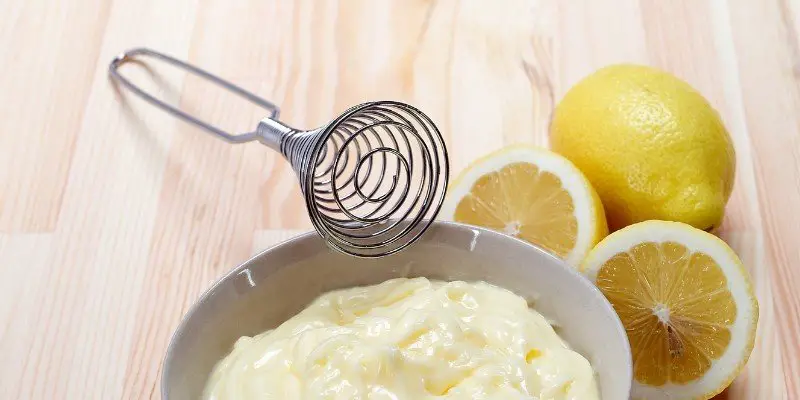People enjoy condiments of all types, and we have figured out how to include them in almost every feast. For sweet dishes, we depend on delicious spreads and toppings like cream or maple syrup, for savory – we have even more space for creativity— ketchup, hot sauce, mustard… but one of the most popular condiments, however, is mayo. We’re using mayo in fries and burgers. Some of us even use it to fancy up artichokes.
When it comes to those not quite natural or healthy condiments like mayonnaise, we know we have to watch our portion sizes, and well, we probably understand that it’s better to ditch mayo at all. This is one junk food that still can eat in moderation (and survive). But should our animals also eat it?
You might also like:

So, can dogs have mayonnaise?
If you enjoy mayonnaise, and so does your pet, here’s the reassuring news – mayonnaise is not poisonous to animals. What does this imply? Well, unlike some human ingredients, your pet should not get sick instantly after eating some of it. So if you’re happy to share your condiments with your pup, technically you can do that.
Is mayonnaise good for dogs?
Before you get too enthusiastic, we should likely address why mayonnaise is not beneficial for pets.
Yes, it’s not poisonous, but there’s nothing healthy about it for your pup. In reality, it may even cause harm. Do you understand what mayo’s fat content is? It is 75 %. Including 60% of saturated (“bad”) fats.
No veterinarian would suggest providing your pet such a high-fat diet.
Many store-bought mayonnaise products are also produced with soybeans. Many animals are allergic to or sensitive to soy goods. If soy products don’t work well with your pet, never give him mayonnaise.
Is mayonnaise bad for dogs?
It obviously comes as no surprise that mayo gives no health advantages for your pup. As many processed condiments, mayonnaise is nothing more than some chemicals along with tons of empty calories (650 calories in 100 g of mayo and 75% of it are from FAT).
Empty calories are wasteful, but they can be harmful as well. Canine obesity can have a severe adverse effect on the lifetime and quality of life of your dog. Dogs who carry extra weight often discover it hard to be active, which can lead them to become lethargic and depressed.
You might also like:
Obesity can also increase the likelihood of your pet companion will suffer from more diseases like type two diabetes, insulin resistance, various heart health conditions, arthritis, and even some kinds of cancer. Some trials have discovered that obesity can decrease the life expectancy of your dog by up to two and a half years!
Mayonnaise is produced from eggs blended with seasonings, but most mayo products are so highly artificial that any of the’ nice things’ in the eggs and seasonings have been eliminated completely.
No dog should consume mayonnaise regularly. This fatty, high-calorie food can trigger severe long-term health issues if you frequently offer it to your animal. Long story short, if your pooch had some mayo, you don’t need to drive them to the vet, but you should do your best to keep the condiment away from your pet in the future.
You might also like:
Dogs and mayo. Summary
Technically, mayonnaise is not poisonous to dogs. Some animals may manage eating small amounts of mayo without any apparent negative consequences, while others may encounter digestive upsets and other uncomfortable side effects. But all in all, your dog should not regularly consume mayo. With such a high-fat content, you may want to reconsider allowing even the occasional share of mayonnaise with your four-legged buddy.
Credits: thanks for the cover photo to Canva.


